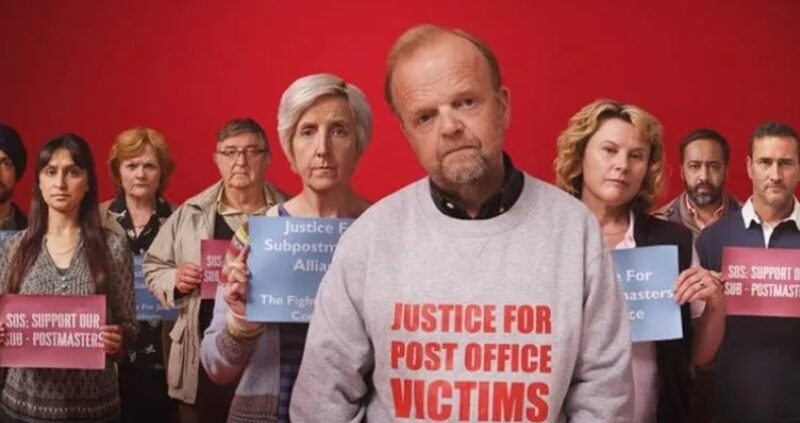By Andy Fenwick, Worcester South Labour Party
In Left Horizons we do not usually carry articles about crime. However, when the establishment comes together to release a murderer who then goes on to murder again then it deserves some comment.
This story originates back in the 1980s, when a student named Ian Beggs studied Public Administration at Teesside Polytechnic. He became prominent in the Federation of Conservative Students and was also connected to the DUP in Northern Ireland, becoming, in fact, chair of Ian Paisley’s anti-sodomy committee. His politics were on the right of the Tory party, taking inspiration from the likes of Enoch Powell and those in favour of hanging the then imprisoned Nelson Mandela.
Debates with Labour students
In his time in Teesside he was reprimanded for using Student Union printing facilities to print and circulate offensive material. I actually shared the same course as Beggs and Labour students debated with him (and trounced him) many times in the Student Union. It was in his second year that rumours emerged of him cutting gay men and I foolishly ignored these stories, perhaps because he was on the opposite side of the political debate and I didn’t want to appear to be using personal slander in my politics.
Then in 1987 a body was found in a wooded area of the North Yorkshire moors, the body so badly mutilated that the police originally thought it was a gangland revenge killing, perhaps linked to the Brink’s-Mat gold bullion robbery. The police later identified the corpse as that of Barry Oldham.
Police made further enquiries and discovered that Mr Oldham had been picked up at Newcastle nightclub and subsequently police were looking for a Mini Clubman with a Northern Irish plate. Still this did not strike a chord with Beggs’ fellow students, even though we had plastered his Mini Clubmen car with Vote Labour stickers as student prank a few weeks before for the 1987 general election
‘drive on without him’
For the day after our final exam, the course students had booked a coach for a day out to Scarborough, to leaving from outside the Student Union at 9am. When that time arrived and there was no sign of Beggs, we asked ‘should we wait?’ and there was a unanimous shout to drive on without him.
On the journey back to Teesside, the local radio announced that a Fredrick William Ian Beggs had been arrested for the murder of Barry Oldham. We didn’t believe it at first: maybe there is another person with a similar name. But it was indeed the Ian Beggs we’d all studied with.
At his trial Beggs insisted it was self-defence, but the Crown applied for him to be tried him on a number of wounding charges involving other men along with the murder charge. It did not take the jury any time at all to find guilty and he was sentenced to life.
This kind of story would nominally end there, but if you have influence and you can call on favours it might not. In his time as a student, Beggs had climbed the Tory grease-pole to become regional chair of the Federation of Conservative Students; he had wined and dined with Tory big-wigs and had even been to Downing Street. So when he had an appeal, although nobody thought it stood a chance, his conviction was overturned. The Court of Appeal said that the inclusion of wounding charges was prejudicial, and the original judge should not have included these charges.
A serial killer in the making
The original trial judge was aghast on learning that the first conviction had been overturned and he did not accept the ruling. Retired detective chief superintendent, Tony Fitzgerald, the former head of North Yorkshire CID, said “When we caught Beggs all those years ago, we seriously thought we had caught a serial killer in the making. We thought we were lucky because we had managed to catch him after his first killing “
In such cases the Court of Appeal would normally send the case for retrial, if the CPS thought there was a case to be answered. But after serving only two years this Tory Boy was free to go on the rampage again. Now relocated to Scotland, he continued with his sadomasochistic urges, with a conviction in 1991 for slashing the leg of a man who only escaped by jumping through a plate glass window.
Then, in 1999, the ‘Body in the Loch’ case hit the headlines in Scotland. The body was that of Barry Wallace who had worked at a supermarket. It turned out he was murdered by Beggs and dismembered, with his body dumped into Loch Lomond and his head into the Sea of Troon. It is reported that when the police entered the details into the national police computer, only one person matched the modus operandi.
Beggs must have learnt from his first prison stretch to hide forensic evidence where he could and in the ten days between the murder and a police search of his property, the police found that part of the decorative fabric in the apartment had recently been replaced. Carpets had been removed and replaced. Over the following days Beggs made numerous return journeys to Belfast and eventually escaped to Amsterdam.
Propensity for wounding
His second trial, in October 2001, heard evidence what was contrary to the Court of Appeal decision, about Beggs’ propensity for wounding other men. This time, however, it was not considered prejudicial and he was found guilty and sentenced (again) to life imprisonment. In the last twenty years Beggs has launched one appeal after another, but it looks like he has little chance of a second release.
The jury in the second trial concluded that the Beggs had lured his victims back to his home. A question that needs to be asked is how the Court of Appeal came to the decision to free a murderer after the first conviction. Was it the case that Beggs was able to influence members of the Establishment to his own advantage? No review has been carried out into the Appeal and the fact that another gay man was killed as a result of his release.
Justice for working people
The Establishment cannot be trusted to ensure justice for working people, even in regards to criminal justice. In the last thirty years working class youth have been caught up in a catch-all charge of “Joint Enterprise” which can apply to all crimes, but in recent times has been used as a highly effective way of prosecution in cases involving groups of young men. The joint enterprise rule allows the prosecution of members of a group, for murder for example, even if it cannot be proved which member of a group actually inflicted the fatal blow. It is highly controversial because it lowers the burden of proof for the prosecution and allows some who might be physically remote from a crime, or not even players at all, to be swept up in a prosecution and convicted on the basis that they were all “in it together”.
It is nearly impossible in the courts to provide a defence to a charge that the defendants “could” have foreseen violent acts by their associates: it means that by being in the same location you are guilty.
This is the kind of justice that working-class youngsters have to face. But in contrast, consider the Oxford University Bullingdon Club, a posh-boys’ club exclusively reserved for the sons of the very rich – Tory MPs, Boris Johnson, David Cameron and George Osborne were all members (picture above). Would they face the same justice as working-class youth?
Well, in December 2004, a group of these Bullingdon toffs went on a drunken rampage, wrecking the White Hart pub in Fyfield, near Oxford, intimidating waiting staff. Waitress Nicola Rees, speaking to the BBC, said: “They were acting out some kind of ritual. It was not through excess drinking, it was planned. They were not really drunk or throwing up. They had not come here to eat, they had come to trash the place. Apparently, it’s been going on for years. It’s some kind of tradition.”
Yet out of these fourteen posh hooligans, only four were arrested and fined just £80, pocket money for them. This was a planned as a ‘joint enterprise’ but there was no prosecution of these rich toffs.
Privilege is a product of a class system and in the criminal justice system reflects that privilege. What is required is for criminal justice to reflect society and not be the product of ruling class.
September 10, 2020



